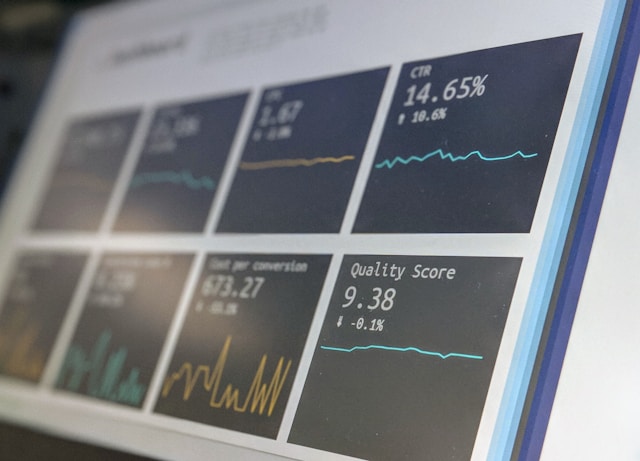Data science, a field that merges statistics, computer science, and domain expertise, has been transforming how we understand and utilize vast amounts of data. In our digital age, where data generation is ubiquitous—from smartphones to sensors in machines—data science provides the tools to turn this data into valuable insights. This transformative capability makes data science integral to industries ranging from healthcare to finance, offering predictive power and decision-making precision that were previously unattainable.
Navigating the current landscape
Today, the practice of data science is characterized by the integration of advanced analytical techniques and sophisticated algorithms that can learn from and make decisions based on data. The rise of big data technologies and cloud computing has provided data scientists with the resources necessary to store, process, and analyze vast datasets that are beyond the scope of traditional databases.
Anticipating the road ahead with AI
Looking towards the future, the field of data science is poised for further evolution, especially as artificial intelligence (AI) becomes more prevalent. Tools and platforms like EssayPro essay writing service leverage AI to offer services like text analysis, which can help students enhance their writing by providing insights into structure, content, and style. This intersection of AI and data science is creating new frontiers where automated learning and decision-making can happen at unprecedented scales.

Current trends in data science
Machine learning models go mainstream
Machine learning, a subset of AI, has become a cornerstone of modern data science. Today, it is not just about building models; it’s about deploying them into real-world applications that can learn and adapt in real time. Industries are using machine learning to predict customer behavior, optimize business processes, and manage supply chains more efficiently than ever before.
The surge of deep learning
Deep learning takes machine learning a step further by using complex neural networks that simulate human decision-making. Its ability to process and learn from vast amounts of unstructured data is revolutionizing fields such as image and speech recognition, natural language processing, and even autonomous driving.
Data science in the cloud
Cloud computing’s scalability has made it a preferred choice for storing and analyzing big data. Cloud platforms provide the flexibility to use sophisticated data science tools without the need for extensive hardware infrastructure. This democratization of data science tools means that more organizations can leverage advanced analytics to drive strategic decisions.
Future predictions for data science
AI-driven automation
As AI continues to evolve, one of the most significant impacts it will have on data science is the automation of data processes. From data cleaning to complex data analysis, AI is expected to streamline the data science workflow, making it more efficient and reducing the likelihood of human error.
Augmented analytics
Augmented analytics is an emerging trend where machine learning is used to augment human intelligence and contextual knowledge. This involves automating data preparation and enabling shared insights across a broader range of business users. By enhancing the accessibility and understanding of data, augmented analytics can lead to more informed decision-making across entire organizations.
Ethical AI and data privacy
As data science and AI continue to evolve, ethical considerations and data privacy will become increasingly critical. The need to develop AI systems that are transparent, fair, and accountable and which protect individual privacy, will be paramount. Data scientists will need to balance innovation with ethical considerations to maintain public trust and compliance with regulations.
Implications for students and educators
Understanding the trends in data science and AI is crucial for students’ academic growth and career preparedness. Educational institutions will need to adapt their curricula to include advanced AI and machine learning courses, along with ethics and data governance.
Expanding the role of data visualization
Data visualization is set to become more sophisticated with the integration of AI, making it easier for data scientists and non-experts alike to understand complex datasets. Tools that can automatically generate insightful visualizations based on the data provided will become more prevalent.
These tools not only simplify the interpretation of results but also make communication more effective, allowing businesses to make faster, data-driven decisions. This trend will require students to master not only the technical aspects of data visualization but also to develop an acute sense of how to tell stories with data visually.
Quantum computing’s impact on data science
Quantum computing promises to revolutionize data science by allowing data scientists to process information at speeds unattainable with classical computers. As quantum technology becomes more accessible, it will allow data scientists to solve complex problems, such as simulating large biological systems or optimizing large-scale systems, in ways that are currently impossible.
This means students may need to learn quantum computing principles and how they can be applied to data science. Integrating quantum computing into the curriculum could provide a significant competitive advantage in the job market.
Real-time data processing
With the increase in IoT devices and continuous data streams, real-time data processing is becoming crucial in many industries, such as manufacturing, healthcare, and finance. This shift means that the future data scientist needs to be proficient not only in handling static datasets but also in implementing and managing systems that can process and analyze data in real time.
Technologies like Apache Kafka and streaming platforms are examples of where data science is heading, requiring new strategies for data management and analysis.
Personalized data science learning
As educational platforms evolve, personalized learning environments using AI to tailor content to the learning styles and paces of individual students will become more common. These adaptive learning technologies can identify areas where students struggle and introduce new content or revise strategies accordingly.
For data science education, this could mean highly personalized courses that adapt complex concepts and practical implementations based on a student’s progress and performance.
Final thoughts
The future of data science is undeniably intertwined with the progression of AI technologies. For students stepping into this dynamic field, the opportunities are vast and exciting. Staying informed about the latest trends and ethical considerations will be key to successfully navigating this evolving landscape. For those needing academic assistance along the way, the best paper writing services can be a valuable resource to support your educational journey. As we look forward, the integration of AI in data science promises to enhance analytical capabilities and create new challenges that will inspire innovative solutions!











Leave a Reply